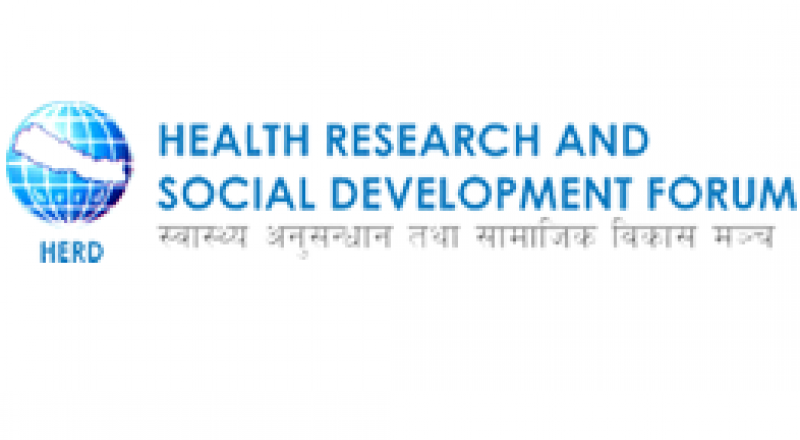Menstrual taboos negatively affect adolescent girls. Global evidence suggests that girls receive insufficient guidance and information about menstrual onset, hygiene and management, and often, cultural norms and taboos reinforce gender inequalities.
With the support of UNICEF Nepal, HERD is conducting ‘Analysis of Menstrual Hygiene Practices in Nepal: The Role of WASH in School Programme for Girls Education’. The overall objective of the project is to:
- Observe and document the effect of WinS (WASH in Schools) intervention on school attendance
- Explore how menstrual management affects girls’ confidence and social interactions in school as well as in the community
The study was conducted in 4 schools from Achham and Bajura (2 each) and 4 schools in Parsa district. The field researchers have completed the data collection. A debriefing session was organized on 29th June, Wednesday at HERD training hall where the field researchers shared their experiences and learning. They dealt with major field issues, field implementation process, key observations and provided recommendations as well.

Machhindra Basnet, Project Coordinator opines, “Menstrual hygiene management is a key and often neglected issue in public health. It is imperative that we understand the community context and address the health concerns of women through studies such as these.”

Dr Sushil Baral, Executive Chairperson of HERD admired the field researchers for the successful accomplishment of their tasks. He said, “As young researchers, it is important that theoretical understandings are put into practice. Studies such as these provide an ample opportunity to understand the ground reality. In that sense, communities and the people are the perfect public health laboratories.”
Field Researchers’ Experiences

Sweta Karna (deployed in Parsa): During the visit, we noticed that some schools adopting WinS approach had maintained toilets properly but the non-WinS schools had not prioritised maintenance of toilets. In one of the schools when we asked the girls why they don’t use toilet, they said that they are shy using the toilet. Instead, they are comfortable going out in open.

Manju KC (deployed in Achham): In the schools, when asked if the girls preferred using toilet or not, most said they preferred going to the open fields due to water scarcity. They were also not used to using the toilets. Getting a shelter was another challenge. The people of the community made us stay in the Chau Goth (a cow shed separated for girls to stay during their menstruation period). Earlier, the Chau Goth was constructed far from the house. Nowadays many households had the Chau Goth either on the ground floor of the house or above the toilet which was near to the house.

Alisha Karki (deployed in Bajura): In some places, as the toilets were dirty, the girls preferred going out in open, they used the term ‘mela jane (going to observe the festivals)’ for telling they are going to defecate in open. When demonstrated about sanitary pads, the girls were surprised to see it. There was lack of knowledge among girls and community people regarding WinS in general.
Opinion of an Observer

Amy Mccullough, Public Health Registrar, Severn Deanery, UK
The debriefing session was very interesting and inspiring for me. I found that the field researchers were very professional and their approach to the research was very positive and robust. I think the process of conducting research must be very empowering for them. They must be very persuasive as there was various challenges they had overcome and they still talk about it with a smile on their face.
The challenges here in Nepal are extreme, in United Kingdom we have hard to reach groups but we do not have any geographical challenges or difficulty in terms of access to food or water. So, when I go back, I will be sharing HERD’s research experiences with my researchers.
Menstrual hygiene matters a lot. It’s high time that we are aware, conscious and informed about it.



Comments(0)
No comments found.